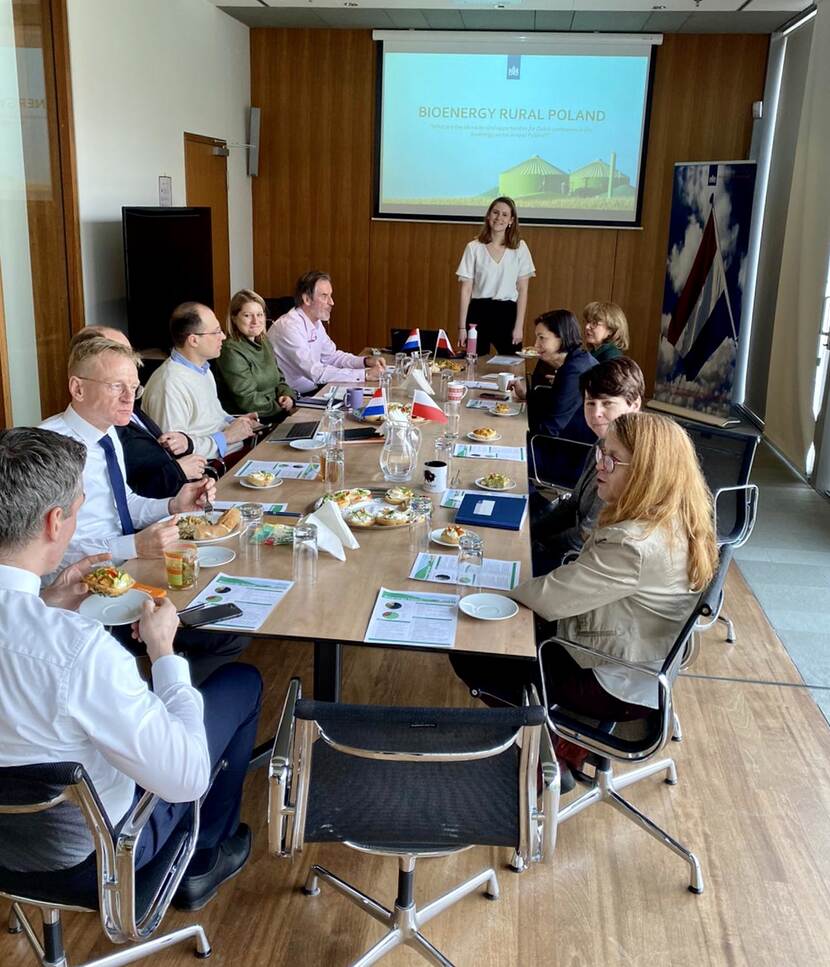Overview of the bioenergy sector in Poland
Did you know that Poland has one of the highest biomass potentials in the EU? During her internship Marisa Groenestege researched the bioenergy sector in Poland to see what the opportunities and obstacles are for NL companies in the bioenergy sector in rural Poland. On February 27 she presented the outcome which, together with an extensive factsheet, can be found in the links of this news article.

Summary of the research on the bioenergy sector Poland
Poland still has a lot of changes ahead that are necessary, especially in rural areas, if Poland wants to reach the climate goals set by the European Union. Bioenergy could be a great option for Poland as it would tackle Poland’s problems with greenhouse gas emissions, air pollution and power interruptions.
The Netherlands is one of the main exporters of technology and a leader in innovation within the bioenergy sector but has a relatively low biomass potential. Poland has a high biomass potential and has a lot of room to grow in the bioenergy sector, making the Polish bioenergy market a possible opportunity for Dutch companies. However, many Dutch companies operating in the bioenergy sector are still hesitant about entering the Polish market.
This resulted in the main research question: “What are the obstacles and opportunities for Dutch companies in the bioenergy sector in rural Poland?”. To answer the main research question, research was done into rural Poland’s energy sector, bioenergy legislation, development costs, support systems, obstacles, and opportunities. The main objective of the research was to review previous research findings and by gaining a broader understanding of the subject and sector, be able to identify where the opportunities and obstacles occur in the Polish bioenergy sector, especially in the rural context. The research is aimed at the interested Dutch companies, to help these companies enter and better position themselves on the Polish bioenergy market.
Obstacles & opportunities
The main obstacles that were found are Poland’s support schemes, bureaucracy, unstable energy market and a lack of biomethane legislation. The main opportunities that were found are Poland’s high biomass potential, a high number of biomass incentives, governmental support for prosumers, the European Green Deal, rising energy prices, many available international funds and growing trust of banks.
Recommendations
The recommendations are to create specific guidelines for companies wanting to enter the market, for installations to locate themselves in the central-eastern parts of Poland, to organize training courses for administrative bodies and stakeholders, to launch educational campaigns that could change the national opinion towards bioenergy, to use straw as biomass input, to compare tender and market prices, and to check which funds might be available.
Both an extensive factsheet and the presentation you can find in the link below. The extensive thesis of Marisa will be published soon.
About Marisa Groenestege
Marisa studies International Food Business at the Aeres Hogeschool (applied university) in Dronten. She started her internship at the agricultural team of the Embassy of the Netherlands in Poland at the end of August 2019 and before that studied for a year in Canada. During her 5 month internship in Poland she wrote several articles and developed factsheets about the agricultural sector in Poland. You can find them in the background information section (achtergrond) of our country webpage. To do so, Marisa talked to companies, visited events and travelled through the country. Her extensive thesis on the bioenergy sector in Poland will be published soon. As agricultural team of the Embassy we want to thank Marisa for all her contributions incl to the team and wish her a bright and succesfull future!